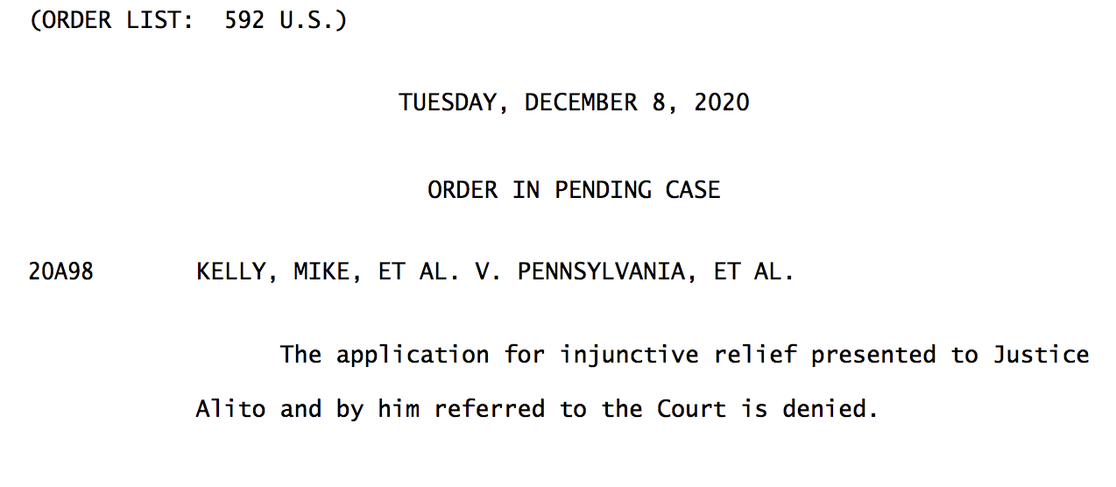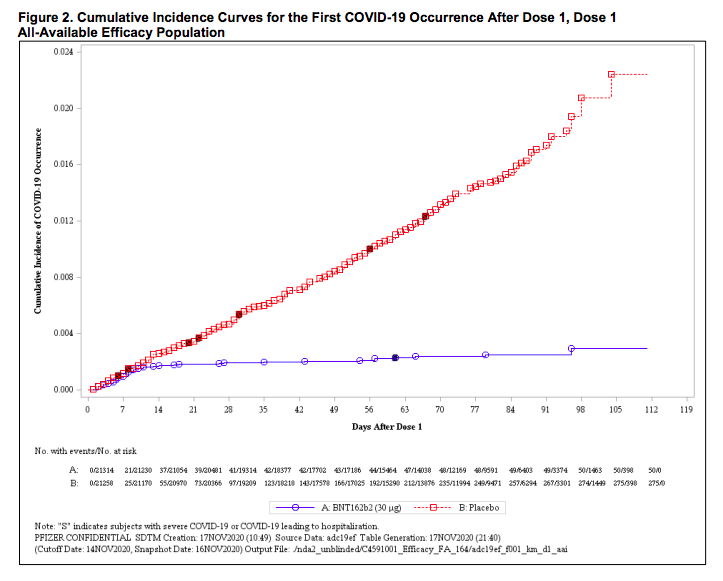| | | | | | | Presented By UnitedHealth Group | | | | Axios AM | | By Mike Allen ·Dec 09, 2020 | | 🐪 Happy Wednesday. Today's Smart Brevity™ count: 1,198 words ... 4½ minutes ⚡ Situational awareness: Former Virginia Gov. Terry McAuliffe, 63, announces today that he's running for the Executive Mansion again. (Richmond Times-Dispatch) 💰 Today at 12:30 p.m. ET, please join Dan Primack for an Axios Virtual Event on the future of venture capital. Register here. | | | | | | 1 big thing: America's new news war |  | | | Sean Hannity last night. Via Fox News | | | | President Trump's election loss has upended America's news landscape, cementing a parallel universe on the right where even Fox News isn't Trumpy enough for millions of his diehards, Sara Fischer reports. - Why it matters: The coming diffusion of news across many easily-accessible streaming channels will likely cause Americans to become even further entrenched in their own, partisan filter bubbles. This could lead to the most profound change in news consumption that America has seen in decades.
After years of dominance in cable ratings by Rupert Murdoch's Fox News, CNN in the past few weeks has pulled ahead consistently for the first time since 9/11. - In the week ending Sunday, CNN averaged 1.73 million viewers in Nielsen ratings — more than double from a year ago, AP reports. Fox News had 1.56 million. MSNBC had 1.53 million.
What's happening: Fox News is facing unprecedented competition from a pair of insurgent conservative cable challengers that are finding a gold mine in pandering to Trump loyalists who want to believe he still has a chance. - On Monday, ratings for Newsmax passed Fox for the first time ever, CNN's Brian Stelter reports.
- As the Biden era begins, MSNBC has seen ratings gains for some daytime programs and for Rachel Maddow's marquee 9 p.m. show.
So Fox News' powerful primetime lineup, which has led cable news ratings for years, now has a two-front war: upstarts Newsmax and One America News (OAN), and tougher competition from traditional rivals CNN and MSNBC. - Fox News still led all cable networks last week, with an average of 2.65 million viewers. ESPN had 2.45 million, MSNBC had 2.18 million, CNN had 1.92 million and Hallmark had 1.67 million, per AP.
- Fox said it had its highest-rated November ever.
Our thought bubble: The inevitable transition from cable to streaming means that it's unlikely that three networks will dominate the political news landscape, as they have for the past 24 years. |     | | | | | | 2. The great power shift | | Elon Musk in Berlin last week. Photo: Liesa Johannssen-Koppitz/Bloomberg via Getty Images America's entrepreneurial and technology power is dispersing beyond Silicon Valley and New York — a trend greatly accelerated by two Cs: coronavirus and California. The big picture: Elon Musk is the latest high-profile business leader to bolt from California because of its governance and cost. - At the same time, workers are fleeing the state — and New York City, too — to work remote, often in tax-friendly states or emerging tech hubs, for good.
What to watch: The next wave of cool innovations — 5G, autonomous tech, drones — will unfold in cities, Axios CEO Jim VandeHei writes. - It appears a lot of CEOs, companies and talent will head there, too. This could spark a realignment of influence and politics.
- Palantir, the data-mining giant, followed through on CEO Alex Karp's complaint on "Axios on HBO" that Silicon Valley is a "monoculture," and moved to Denver.
Ben Shapiro, host of the nation's top conservative podcast, moved his Facebook powerhouse website, The Daily Wire, from L.A. to Nashville in September. - Shapiro told me that California "has made it nearly impossible to do business, between their absurd regulatory climate, their insane tax rates, and the declining quality of life."
Musk said yesterday during a Wall Street Journal CEO Council appearance that the Bay Area "has too much influence on the world." - Musk moved to Texas ... Palantir co-founder Joe Lonsdale moved his venture firm from Silicon Valley to Austin ... and Hewlett Packard Enterprise Co. — "a descendant of the firm that Bill Hewlett and Dave Packard famously started in a Palo Alto, Calif., garage," as The Journal put it — is moving to Houston.
CNBC this week referred to the Lone Star State as "TECH-SAS." |     | | | | | | 3. Axios-Ipsos poll: Fear returns |  Data: Axios/Ipsos Poll. Chart: Andrew Witherspoon/Axios Growing dread of the winter ahead is weighing on Americans' physical and mental health and raising fears about debt and job security, White House and politics editor Margaret Talev writes from the Axios/Ipsos Coronavirus Index. - Why it matters: We're tracking a return to anxiety levels and routines not seen in months.
People's views are being shaped by their own brushes with the virus: - Three-fourths of respondents know someone who's tested positive for COVID — and three in 10 know someone who's died.
Keep reading. |     | | | | | | A message from UnitedHealth Group | | How to make health care more affordable | | |  | | | | Transitioning to value-based arrangements for prescription drugs will lower consumer out-of-pocket costs by 28%, improve outcomes, and speed access to new curative therapies. Learn more about UnitedHealth Group's ideas to make health care more affordable. | | | | | | 4. Supremes snub Trump | " Miscellaneous Order" of the U.S. Supreme Court In a one-sentence order, the Supreme Court rejected Republicans' last-gasp bid to reverse Pennsylvania's certification of President-elect Joe Biden's victory. — AP |     | | | | | | 5. Graph du jour | | An FDA review found Pfizer's vaccine is safe and offers strong protection within about 10 days of the first dose, clearing the way for the agency to issue an emergency use authorization. |     | | | | | | 6. World's most powerful women | | Courtesy Forbes 13 of Forbes' World's 100 Most Powerful Women "helm some of the world's biggest banks and financial institutions, positions they've leveraged to effect change in the world," Forbes' Samantha Todd writes: - Jane Fraser (No. 23), president of Citi and CEO of the global consumer banking business, in February becomes the first woman to head up a major Wall Street bank.
- Anne Finucane (No. 36), vice chairman of Bank of America, has expanded the bank's "philanthropic efforts, committing $100 million in grants to increase the accessibility of food and medical supplies ... 'As we collectively navigate this health and humanitarian crisis, we recognize that the private sector can play a pivotal role,'" Finucane said in a statement.
- No. 40: Mary Callahan Erdoes, CEO, asset management, JPMorgan Chase.
- No. 43: Marianne Lake, CEO, consumer lending, JPMorgan Chase.
- "Of the 13 women in finance, just one is a newcomer to the ranking: Mellody Hobson (No. 94), co-CEO of money management firm Ariel Investments."
For the 10th consecutive year, German Chancellor Angela Merkel is No. 1. Christine Lagarde, president of the European Central Bank, is No. 2. Vice President-elect Harris is No. 3. Queen Elizabeth II is No. 46. |     | | | | | | 7. "America's military needs an innovation overhaul" | | Retired Army Gen. Lloyd Austin in Iraq in 2007. Photo: Defense Department via Reuters If retired four-star Army Gen. Lloyd Austin is confirmed as secretary of defense, he "would inherit a Pentagon that has lost its technological edge," Bridgewater CEO David McCormick and Bridgewater research associate James Cunningham write in Fast Company: Policymakers, businesses, and citizens must commit to fundamentally altering the ecosystem of national defense: This starts with a stronger, more integrated commitment to innovation and a more open defense industry. For these reforms to have real bite, though, the U.S. military must not only embrace them but also work to cultivate a culture of constant evolution. McCormick and Cunningham call for a national innovation policy: "Emergent technologies are more likely to be funded or developed by the host of agencies, national labs, and government-affiliated research centers that make up the national security innovation base, than by a Department of Defense lab." |     | | | | | | 8. Pornhub adopts Kristof manifesto | | Pressured by Visa and Mastercard, Pornhub announced content guardrails that mirror recommendations the N.Y. Times' Nick Kristof made this weekend in a column exposing the site's huge catalog of videos showing rape and exploitation. |     | | | | | | 9. California GOP's more diverse face |  | | | From left (all R-Calif.): Reps.-elect Young Kim, David Valadao and Michelle Steel, and Rep. Mike Garcia. Photos: AP | | | | It had been over two decades since a Republican captured a Democratic House seat in California. This year, Republicans took four, AP's Mike Blood reports. - Why it matters: The stunning victories have California GOP leaders talking about a comeback after years of teetering on the brink of irrelevance.
Keep reading. |     | | | | | | 10. 1 smile to go | Via Twitter. Used by permission Spotted by WaPo Style reporter Monica Hesse in Prince George's County, Md. |     | | | | | | A message from UnitedHealth Group | | Helping people afford prescription drugs | | |  | | | Optum is helping people afford prescription drugs by estimating cost and approval information when a medication is being prescribed:- 400,000 providers use the tool
- 9 million people have benefited
- People save $225 per prescription
Learn about OptumRx's PreCheck MyScript. | | | | 📬 Thanks for starting your day with us. Please invite your friends to sign up for Axios AM/PM. | |













No comments:
Post a Comment